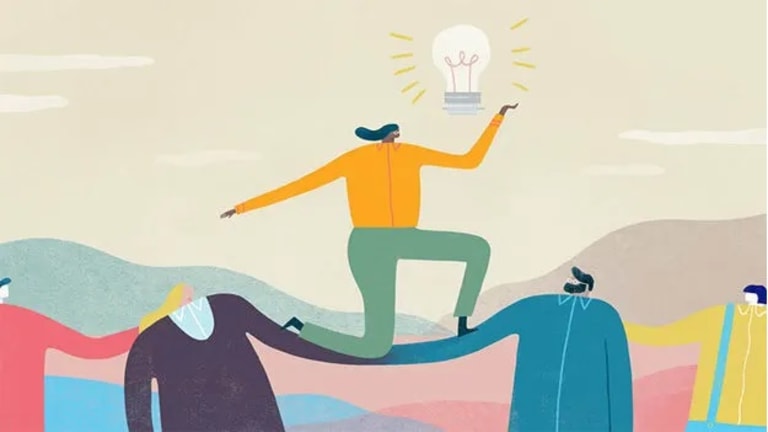
Employee Wellness Promise: A game changer in the post covid world?
Strategic HR#RedrawingEVP#GuestArticle#EmployeeExperience
About a year ago, I had a thought provoking conversation with Madhu (name changed to protect the identity of the person), a brilliant and motivated Cummins India Engineer who after one year of the pandemic felt overwhelmed and exasperated with having to shoulder on work and home care responsibilities. These new sets of expectations completely changed her life priorities. More than a pay hike or promotion, she desired a supportive work environment and organizational resources to accomplish a balanced work life equation.
The pandemic heralded radical shifts in the way we work and live. Numerous innovations and disruptions were triggered by the Covid-19 pandemic in the past two years. This led to blurred boundaries between professional and personal. Our workplaces have taken a quantum leap while our people are rethinking their work and life purpose. The pre-covid Employee Value Proposition (EVP) is archaic and irrelevant today as most organizations and HR evangelists attempt to demystify the ‘Great Resignation’ phenomenon. Having witnessed tremendous loss and stress, our people (and not employees) are seeking holistic wellness transcending across work, life, health, and community instead of value. This calls for organizations to remodel their EVP to a more human centric Employee Wellness Promise (EWP) with a special impetus on health and mental well-being, work autonomy, personal development, forging connections instead of building professional networks, and seeking purpose instead of targets.
As our people navigate the intricacies of the ‘Future of Work’, which is already here, we must provide them a conducive environment, helpful resources, complemented by personal growth and development opportunities. While the EVP focused on the ‘what’, the EWP must spotlight the ‘why’. Organizations should make the holistic wellness and prosperity of their people as their core mission. People must be constantly apprised of how and why they are an integral part of the company’s mission and vision.
A World Economic Forum research aptly points that success of employers building new work models would hinge on taking cognizance of the evolving demographics and transforming job roles as well as leveraging the covid disruptions as an opportunity to design workplaces that serve the needs of everyone – employees, employers and other stakeholders. With our work and personal lives becoming mutually non-exclusive, the hybrid work model is irrevocable and radical flexibility should be embraced by organizations. We must empower and entrust our people to choose to work in a way that brings out their best output, providing them flexibility of both time and space as well as making a conscious effort to understand and address their impediments. Madhu’s struggle was real and resonated with many of our female and even male employees, who were compelled to take care of elderly, children, and home responsibilities. At Cummins, we deeply care about the well-being of our people and the last two years have reinforced that flexibility and agility are extremely important for our people to bring their whole self to work. This led to the global launch of the Role Categorization concept to help our people seek roles that fit their preferred ways of working – onsite, hybrid or offsite. We also released the Dependent Care Program to help our people focus better by sharing their personal responsibilities and offering multiple benefits like EAP, Flexible Paternity leaves, Elderly Care initiatives, enhanced medical coverage etc.
The ubiquity of mental health issues has never been as pronounced as during the pandemic and yet the hesitation and stigma attached to the subject is disturbing. Even outstanding employees also sometimes struggle with life challenges and do not understand the implications of overlooking feelings of loss, grief, anger, discontent etc. Employers should champion awareness and action around mental wellness just like we do with physical health. The holistic wellness of people must be integrated in the business strategy to encompass physical health, mental well-being, work-life balance, and accountability towards their community and the planet.
At Cummins, it is our mission to ‘Make people’s lives better by powering a more prosperous world’ and our culture is one that believes in POWERING YOUR POTENTIAL. Not only do we hire the best – we want to help the best become even better. We are committed to and invested in the prosperity of our people. Cummins provides value to its people through an employee experience offering a focus on career advancement opportunities (Hire to Develop, Internal Job Movements, Integrated Talent Management System, Job Interest Alignment) while also providing the necessary work-life integration and focus on wellness (Health and Wellness Initiatives, It’s OK Campaign, Community Volunteering Opportunities). We also provide them a diverse, equitable and inclusive environment to make meaningful contributions to our business, customers, communities, and the world.
The pandemic has enforced the evolution of our systems and processes, which has spiraled into demographic and psychological shifts amongst our people. As employers, it is our responsibility to recognize these changes and calibrate our HR strategies to address them. The ask is simple - our strategies need to become more humane and empathetic; our people (not employees) and their holistic wellness and progress need to be integrated into the business strategy, and our people need to feel cared for and valued at our workplaces.
The Employee Wellness Promise is the cornerstone of the ever evolving ‘Future of Work’ and the onus is on us as HR Leaders of how well we live up to this commitment towards our people who are the true enablers of our success.














